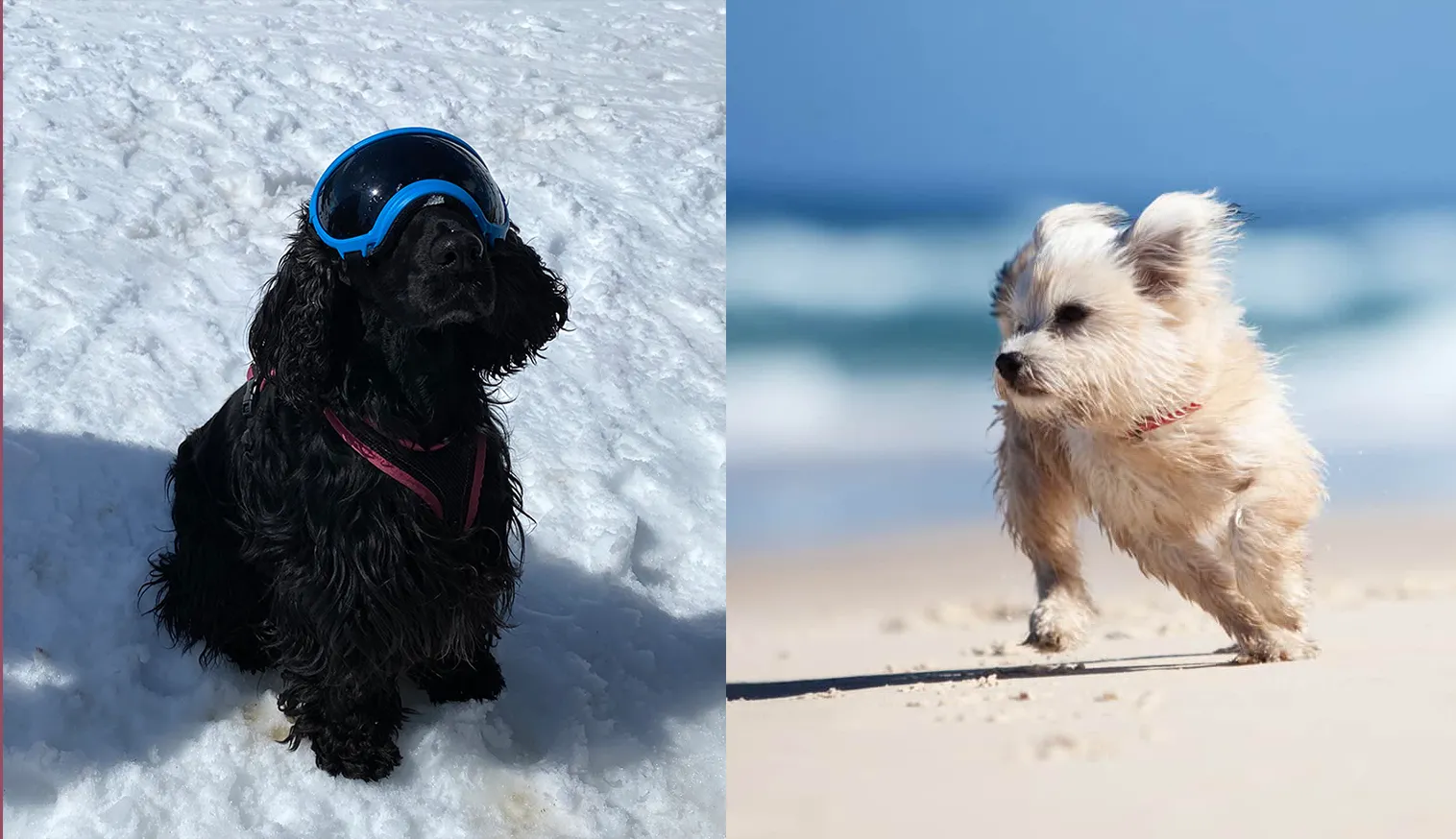The skin is protected from the sun by the coat to a certain extent, but dogs can still get sunburned and also develop skin cancer.
Fur is great because it reflects the sun, but it's not perfect, and specifically pit bulls, Labradors, Dalmatians, white bulldogs, beagles and other breeds with light coats, short coats and less belly hair are prone to sunburn and skin cancer. They have less protection and many hairless area on the belly.
Those that like to lie on their backs and sunbathe are especially at risk.
But so are dogs who have a condition that causes hair loss, such as certain skin diseases or allergies, or if they have been shorn or shaved short for surgery.
What can be done preventively?
Shade. Veterinarians say the best protection is to stay in the shade a lot throughout the year. Since animals don't sweat the way humans do, it's also harder for them to cool off. It's important to always carry water for your dog, too, especially on long walks.
Clothing. Consider clothing for pets that need to be in the sun. It doesn't have to be special sun protective clothing for dogs, you can also adapt your UV protective t-shirt. You'll also see sunglasses for dogs more and more often.
Windows. Remember that windows also allow dangerous UV rays to penetrate, both at home and in your car. Therefore, consider buying sunscreen film or blinds for the windows and never leave a pet unattended in the car.
Sun protection. Sunscreen is advisable for dogs that are outside a lot and have little hair, such as Chinese Cresteds or dogs with pre-existing conditions. Meanwhile, there are already special creams for dogs. Especially the sun-exposed areas, such as the areas around the skull, nose, eyes, and mouth and, in predestined breeds, the construction area should.
If you do notice something?
Examine your dog regularly and as soon as you notice something new, such as a red spot, an open sore that won't heal, or lumps or bumps that change or look unusual, see your veterinarian.
Early detection of any type of skin cancer is the key to the least treatment with the highest chance of cure.
